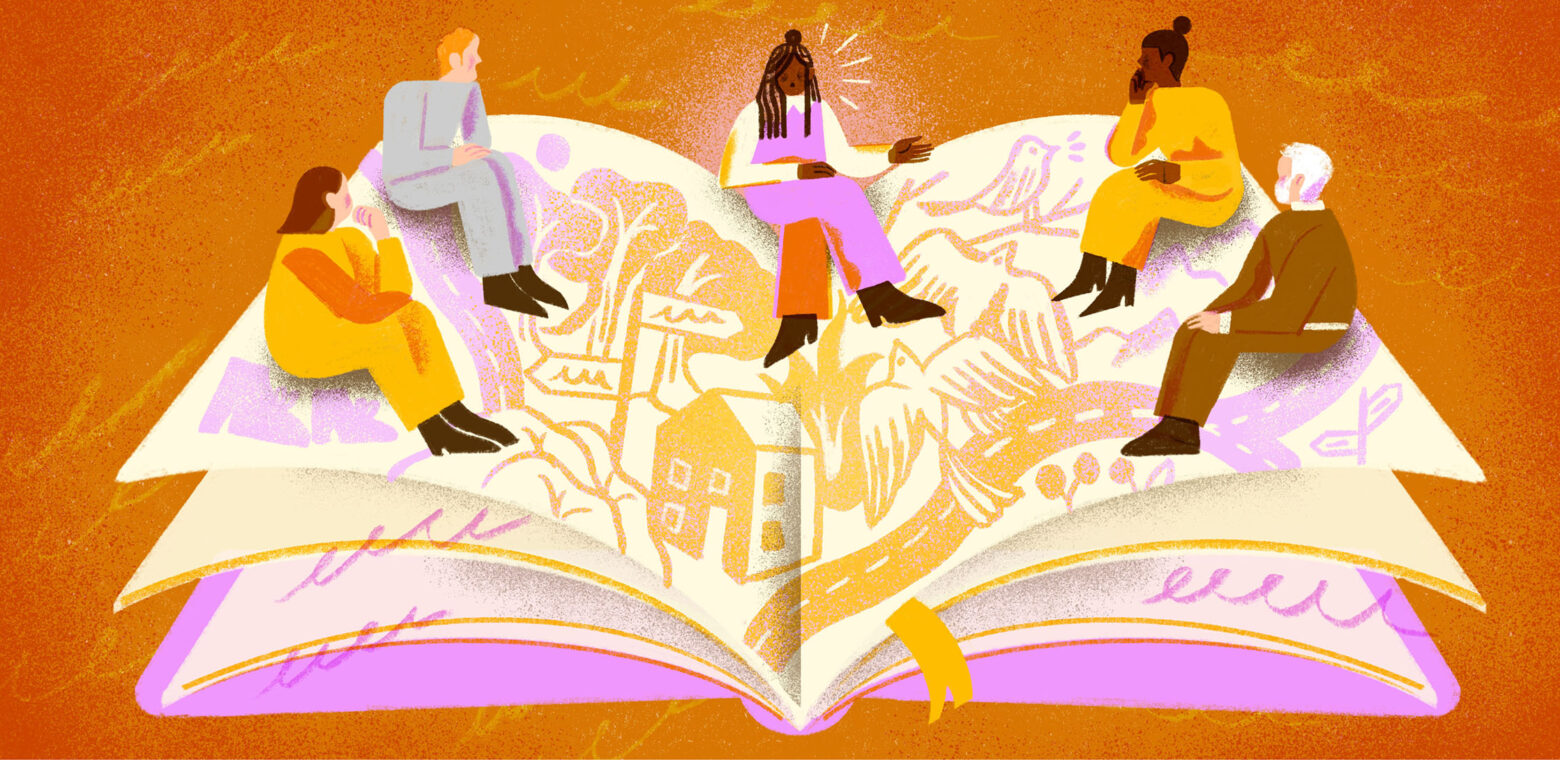I’ve been doing a lot of research on intergenerational literacy and oral history and researching ideas like Gentelligence and exploring how different generations communicate, preserve stories, and pass on traditions lately. Along the way, memories of my own experiences keep bubbling up, reminding me why understanding intergenerational literacy and keeping storytelling alive is so important.
One memory in particular that came back to me was from about a year ago. It was a difficult time for me because my writing group that I had been hosting at the library for several years fell apart. I was saddened by the ending of this group because it had been so magical. Well, in true Compassionate Librarian form, I wanted to keep the magic going, so I found myself starting something new: a storytelling circle. I am someone who loves stories. I am surrounded by books all day, every day, I find myself drawn to stories in every form.
So I leaned into what I know best: talking to groups and sharing stories.
Our very first gathering centered around banned books. I wheeled in a full cart of titles from the Top 10 Challenged list, and what unfolded was magical. Each person had a personal connection to a book on that cart. I read this in high school. I found this during a difficult time in my life and it comforted me. This was my favorite story growing up. What began as a discussion of censorship quickly became a circle of memories, reflections, and laughter.
As we talked, connections emerged. I could see it wasn't just between people and books, it was clearly between multiple generations sharing stories that are valuable and meaningful. We found ourselves reflecting on how stories shape identity, comfort us in hard times, and offer perspectives that sometimes scare the world enough to be challenged. We realized that among all of our collective memories there are many stories worth telling.
That day, this new group bonded. We decided to meet monthly and share stories, memories, and carry on oral traditions. Family, holidays, ghosts, places we grew up, the conversations all just flowed naturally, weaving together threads of lived experience that transcended beyond anyone's age or background. The ages spanned from teens to seasoned adults.
Looking back now, I see that what began as the end of one group became the beginning of a new kind of community. Just like Djo’s song End of Beginning, we found our group in another version and we were in it. We were definitely in it. All we needed was a space to talk, to listen, and to honor the stories that connect us across generations. It was so amazing!
Sometimes, when writing fades, storytelling finds its voice and I want to give tribute to this group for bringing back the art of storytelling and preservation the tradition of oral history.
Until next time,
the Compassionate Librarian














